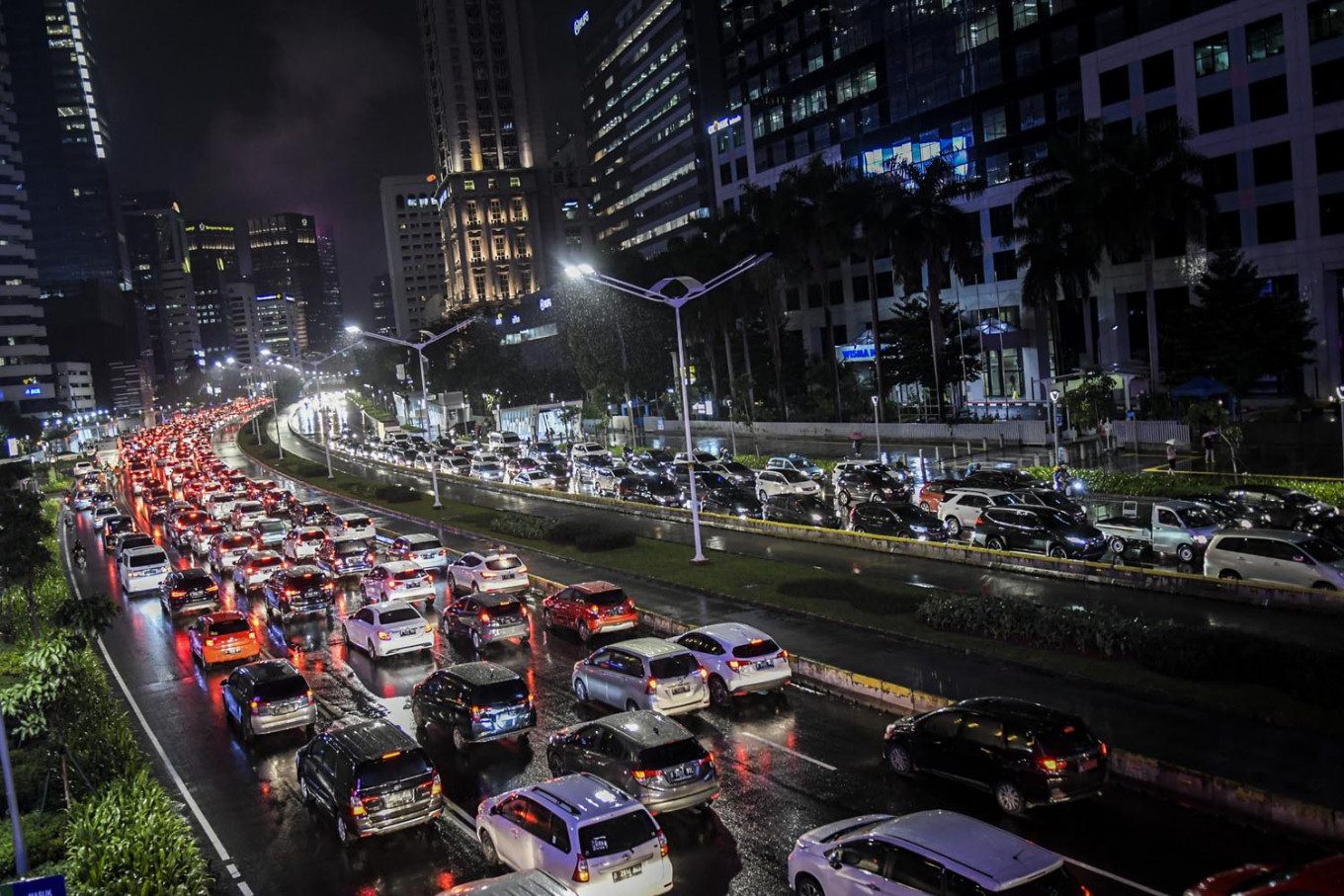Popular Reads
Top Results
Can't find what you're looking for?
View all search resultsPopular Reads
Top Results
Can't find what you're looking for?
View all search resultsNo odd-even policy yet during transition period, Anies says
Change text size
Gift Premium Articles
to Anyone
J
akarta Governor Anies Baswedan said on Monday that the provincial administration would not impose the odd-even vehicle restriction policy yet despite acknowledging that personal vehicles were crowding the streets of Jakarta as the large-scale social restrictions to curb the spread of COVID-19 had been relaxed.
Anies said that, during this transition period, the Jakarta administration saw no circumstances requiring the implementation of the policy.
Starting on Monday, some offices in the capital have had employees working from the office following the relaxation of the large-scale social restrictions (PSBB) as Jakarta enters a period of transition to the "new normal".
Although the governor acknowledged that the use of personal vehicles remained high during this transition period, Anies said the Jakarta administration had yet to come to a decision about when it would reimpose the odd-even traffic policy – the strategy of the provincial administration to tackle Jakarta’s traffic issues.
“The gubernatorial regulation stipulates that in this transition period, if there is a spike in the number of cases, we can impose an ‘emergency brake’ policy. But it doesn’t mean that we will actually impose [the policy], although we can do it [based on the mentioned circumstances],” Anies said.
Read also: Jakarta takes risk of rebound by moving to ‘transitional’ restrictions
Regarding the odd-even policy, he went on, the provincial administration could impose it during the transition period, but it did not mean that it would impose it immediately.
“As long as there is no circular or notice from the governor regarding the implementation of the odd-even policy, then there is no odd-even [policy] yet,” he said, adding that the policy would be imposed if there is a necessity to control the number of residents going outdoors.
“As long as there is no condition that requires us to do so, and there is no governor’s circular, then there is no odd-even [policy],” Anies said.
Anies said that although the number of people commuting using personal vehicles was higher than the relatively low number of people using public transportation, he acknowledged that there were still passenger pileups, especially at several shelters of city-owned bus service Transjakarta as people were starting to work from the office.
“We will make a rearrangement so that they [passengers] can practice physical distancing as much as possible,” Anies told reporters at the Kendal tunnel in Central Jakarta while conducting his morning inspection on Monday.
Read also: Jakarta not ready to enter ‘new normal’, LaporCOVID-19 survey suggests
The challenge, Anies said, was how to maintain physical distancing at the transit shelters as managing the pileups at non-transit shelters was relatively easier. “Transit shelters are usually more packed,” he said.
Transjakarta had prepared some mechanisms to tackle the issue, Anies added, without elaborating further.










